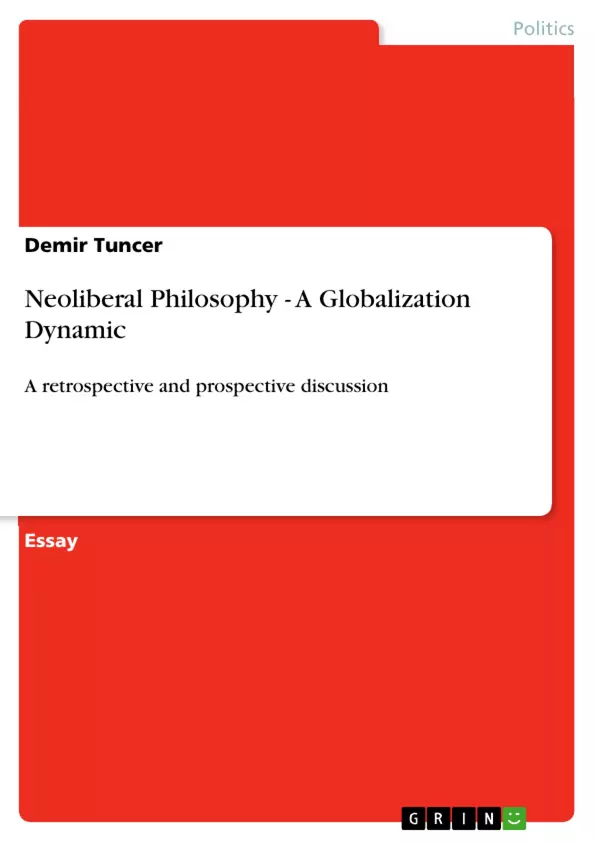This essay looks at neoliberalism as the main globalization dynamic and consequently discusses its implications for today's global political economy, arguing that despite the neoliberal development rhetoric of mass prosperity and sustainable development, neoliberalism along with globalization has led to the decline of the living and working conditions of millions of people around the world.
Inhaltsverzeichnis (Table of Contents)
- Introduction
- Neoliberalism
- Critiques of Neoliberal Globalization
- Alternatives to Neoliberal Globalization
- Conclusion
Zielsetzung und Themenschwerpunkte (Objectives and Key Themes)
This paper aims to provide a balanced discussion of globalization and its relationship with neoliberalism. It explores the historical development of neoliberalism, critiques its application in globalization, presents alternative models for globalization, and concludes with an argument against neoliberal globalization as ethically deficient.
- The historical development of neoliberalism
- Critiques of the neoliberal-globalization relationship
- Alternative approaches to globalization
- The ethical implications of neoliberal globalization
- The importance of ethical considerations in globalization
Zusammenfassung der Kapitel (Chapter Summaries)
The introduction establishes the focus of the paper on economic globalization and its connection to neoliberalism. It acknowledges the multiple meanings of globalization and emphasizes the importance of ethical considerations in the global market.
The second chapter provides a historical overview of neoliberalism, tracing its roots to classical liberalism and its emergence as a response to Keynesian economics. It highlights the key tenets of neoliberalism, such as free markets, minimal government intervention, and individual responsibility.
Schlüsselwörter (Keywords)
This paper focuses on key terms such as neoliberalism, globalization, economic globalization, free markets, ethical considerations, and the role of the state in regulating the global market. It also explores the concept of the "global market" and the influence of international organizations like the IMF, World Bank, and WTO in shaping globalization policies.
What is the relationship between neoliberalism and globalization?
Neoliberalism is considered the main dynamic driving economic globalization, emphasizing free markets, minimal government intervention, and individual responsibility in the global political economy.
What are the main critiques of neoliberal globalization?
Critiques argue that despite rhetoric of prosperity, neoliberal globalization has led to a decline in living and working conditions for millions and fails to provide sustainable development for all.
How did neoliberalism historically develop?
Neoliberalism has its roots in classical liberalism and emerged mid-20th century as a response to Keynesian economics, gaining significant influence through international organizations like the IMF and WTO.
What are the ethical implications of neoliberal globalization?
The paper argues that neoliberal globalization is ethically deficient because it prioritizes market efficiency over human welfare and equitable distribution of wealth.
Are there alternatives to the current neoliberal globalization model?
The essay explores alternative approaches that emphasize ethical considerations, the role of the state in regulation, and models focused on mass prosperity rather than just market expansion.



